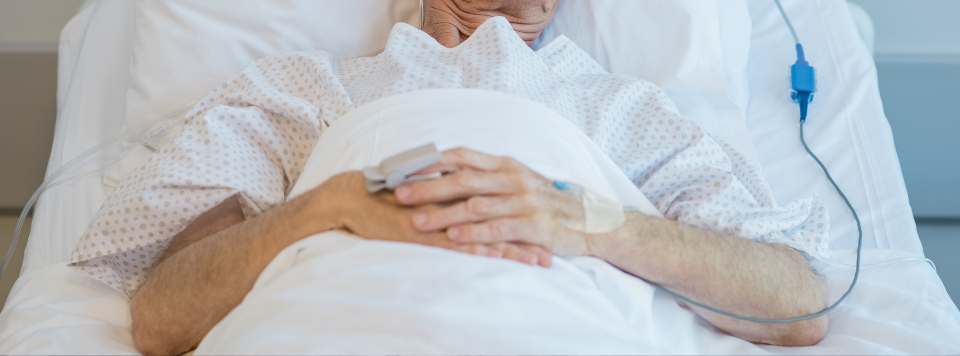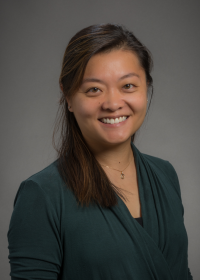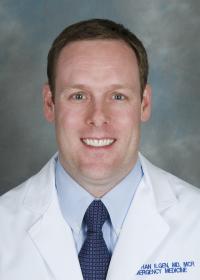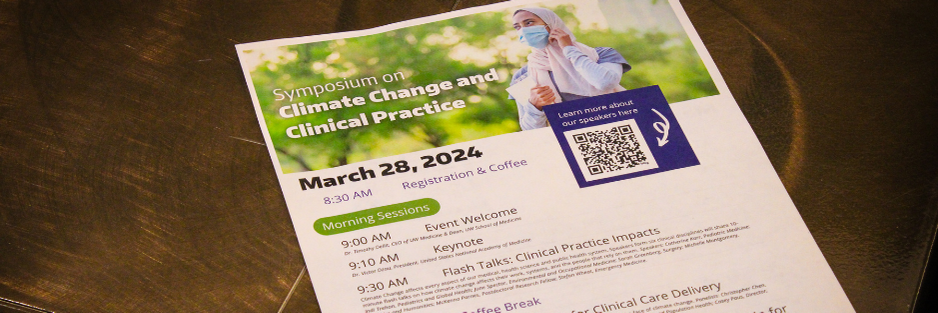
UW stakeholders discuss climate change and healthcare in inaugural symposium
Healthcare leaders and stakeholders within the University of Washington came together Thursday in the first-ever climate change symposium to discuss how the climate crisis impacts health systems.
The event, sponsored by the University of Washington School of Medicine, UW Center for Health and the Global Environment (UW CHanGE) UW EarthLab, and UW Sustainability, offered a full day of learning in areas like disaster preparedness and changes in clinical practice. The Department of Emergency Medicine’s Drs. Stefan Wheat and Jeremy Hess were instrumental in the planning of the symposium.
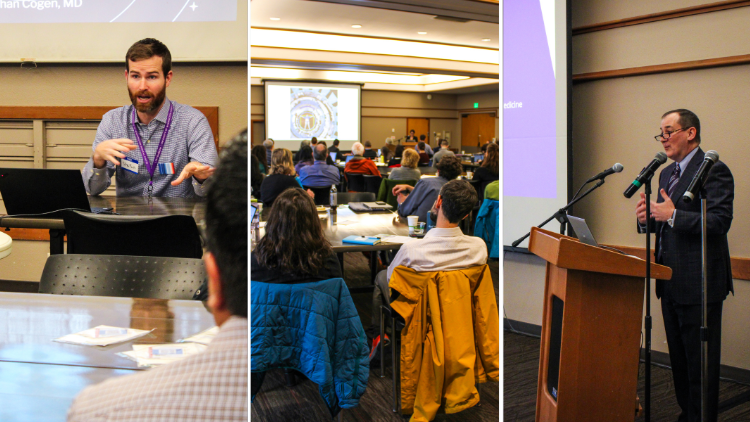
Wheat said the focus was not only on highlighting the climate crisis but giving attendees solutions as well.
“We wanted people to come to this, and not just be left with a sense of doom,” said Wheat “This is a huge issue, that's really scary. We want people to leave this session and know that they can play a significant part in these solutions.”
Physicians have a front-row seat to the climate crisis, according to Wheat. The state of Washington has already seen the impacts of climate change after the heat dome that hit in June 2021. It’s why a main focus of the symposium was on clinical care delivery.
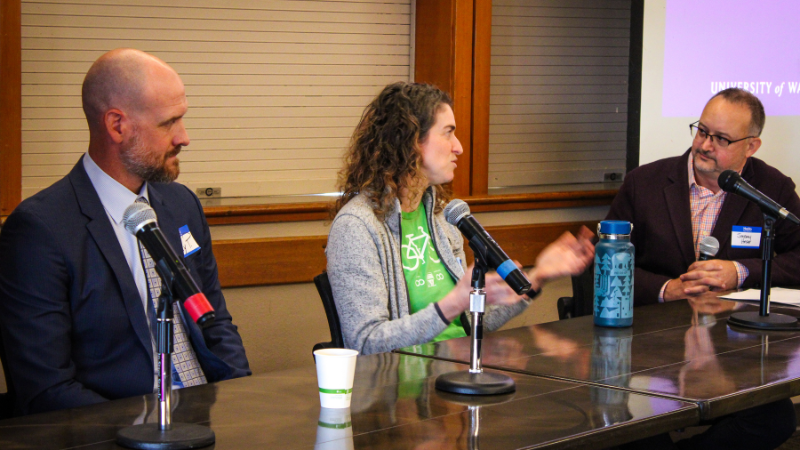
(From left to right: Casey Paus, Stryker, Dr. Elizabeth Hansen, Seattle Children's Hospital, UW Medicine, Dr. Jeremy Hess, UW Medicine, Emergency CHanGE)
“We know that our patients here in the Pacific Northwest are already being impacted by climate change and that clinicians have a sense of duty and responsibility to help protect our patients from that hazard,” said Wheat.
While the climate crisis is impacting healthcare, the field of medicine is not without fault. According to data from the Commonwealth Fund, the healthcare sector accounts for 8.5 percent of U.S. emissions.
"If the healthcare industry worldwide was considered a country, we would be the 5th largest emitter in the world. The U.S. contribution accounts for about 27% of all healthcare emissions worldwide. So, that's significant,” said Wheat. “We feel that we as an we have an obligation as clinicians, people who deliver health care, people who take an oath to say, do no harm, to ensure that we limit those emissions as much as possible.”
Wheat co-led a breakout session focused on the importance of undergraduate, graduate, and continuing health professional education on climate change's profound impact on health. Emergency Medicine’s Dr. Stephen Morris also co-led a session on disaster preparedness, giving participants strategies to mitigate risks and strengthen community resilience.

While this inaugural event was specifically aimed at the UW Medicine community, Wheat hopes to expand to other healthcare systems in the future.
“We want to start local, get our house in order in the UW Medicine community,” said Wheat. “But we do hope that in the future we're going to be able to help bring stakeholders from other regional health systems so we can think about how we do this together.”





